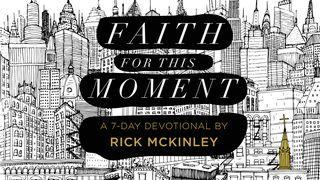Plan info
BeholdSample

# Behold His goodness
[IMAGE CONTENT]
[ Lyric Video ](https://www.youtube.com/watch?v=Y6LCoNlt6vk)
### Rejoice
We will praise You in every season
For Your goodness and mercy unceasing
So as long as we still have breath
We will praise You
Regardless of our situation
You're the joy of all tribes, every nation
So as long as our hearts keep time
We will praise You
We rejoice in the Lord and again we will say
You are always worthy, You deserve our praise
We rejoice in the Lord and again we will say
You make us glad to always rejoice
We were far and removed from the Father
Through the cross we are now sons and daughters
For Your blood You have shed for us
We will praise You
You are ruling and reigning in heaven
Every creature is singing Your praises
And forever we'll join their song
We will praise You
Devotional
It’s a big, seemingly impossible, thing to not only say to the Lord, “You are always worthy”, but to also live like that throughout all circumstances. As it turns out, though, we have a Biblical character who models this sort of heart. His name is Job.
Nowadays, a popular opposition to Christianity is the problem of evil and pain. It is essentially a question of suffering: If indeed God is good and He loves us, how do we explain suffering? Job is a man who came face-to-face with this question. The Bible describes him as “the greatest of all the people of the east” (Job 1:3). This meant that Job did not only have much – material possessions, standing in the community, a large family, and plenty of land (on which he kept in excess of 10 000 animals) – he also stood to lose much. And that is exactly what happens: Job loses everything, almost all at once (Job 1:13-19). He was a man described by God Himself as “blameless and upright” (Job 1:8), who, when afflicted by Satan, God says was done so “without reason” (Job 2:3). Job’s suffering is the epitome of what is perceived as needless suffering.
But Job believed in the goodness of the Lord. He believed God was always worthy of praise, and in the throes of utter devastation he responds in like kind; he responds in praise (Job 1:21).
In the face of such loss, Job seemed to have good reason to be angry with God. Even Job’s wife thought so – she went so far as to suggest Job should “Curse God and die”. But, instead, Job once again offers praise (Job 2:9-10).
So, in the light of Job’s response, it’s at this point that we should be asking ourselves a few questions:
What sort of God is worthy of praise even after He allows us to be afflicted?
How good must He be to still deserve it?
Well, the sort of God who would send His own Son to a horrific death in order to be the atonement sacrifice for our sins (Romans 8:1-4).
Even Job receives this same admonishment (and indeed, this encouragement – see Hebrews 9:12) from Elihu, who tells Job that there is one who will ultimately be Job’s ransom (Job 33:23-24). Elihu foreshadows Christ’s ultimate sacrifice and ransom for us.
It is chiefly because of the goodness of God that we, by His mercy, can be saved “from going down into the pit”, can be drawn out of our sin, and can become as new creations. In His goodness, God, through His Son Jesus Christ, ransomed us from the power of sin and of death and into “the light of life” (Job 33:30).
We know that Christ will return to us once again, and in Him will be the ultimate fulfilment of all of His promises. We will rise with Christ and He will give us new spiritual bodies (1 Corinthians 15:42-58); the earth and all of creation – which awaits His return “in hope creation itself will be set free from its bondage to corruption” (Romans 8:18-21) – will be restored to and by Him, and the Lamb will receive the reward of His suffering.
His goodness in the midst of suffering is even further demonstrated while we wait. George MacDonald once said: “The Son of God suffered unto the death, not that man might not suffer, but that their sufferings might be like His.” He does not simply leave us to wait and to suffer. In the midst of inevitable sufferings, His death on the cross shows us still more His unfailing goodness. Mindful of us, He gives us His own death as an example, too (1 Peter 2:19-21).
We wait for His return, when all things shall be made new, and all sufferings shall cease. Until then we can hold onto the hope He has given us, the new life He has put within us, and the comfort we can find in His never-ending goodness.
Reflections
It is undeniably difficult to respond to serious pain with praise. In what ways did Christ suffer well? What were His responses to “suffering unjustly”? (For example, look at Scriptures such as Philippians 2 and Luke 22:42, among others.)
1 Peter 2:21 says that we have been called to suffer. For most of us this is an extremely uncomfortable thought. Consider past suffering. How has suffering served to grow your character in Christ, your knowledge of Him, and your capacity to comfort others? What else have you learnt through suffering?
In light of God’s plan and Christ’s example for us, how can we encourage our brothers and sisters to suffer well?
[The video portion of this devotional is not available on your device. To view this video, visit your plan at www.Bible.com]
About this Plan

ShofarBand’s latest album, Behold, is about the community of God beholding Him, bringing worship that’s in Spirit and truth: inspired by His Spirit and established in His Word. This devotional is based on the twelve song...
More
Related plans

Unlimited Savior

Spirit-Filled Jesus: Redeem Your Relationships

Faith For This Moment Devotional By Rick McKinley

Encounter His Love // Receive God's Gifts For You

My Heart Is For This House

When You're Worried About Loved Ones

Aging Gracefully According to God's Plan

Jonah: Big Fish, Bigger God

Keep the Faith in a World Turned Upside Down by Dr. David Jeremiah
